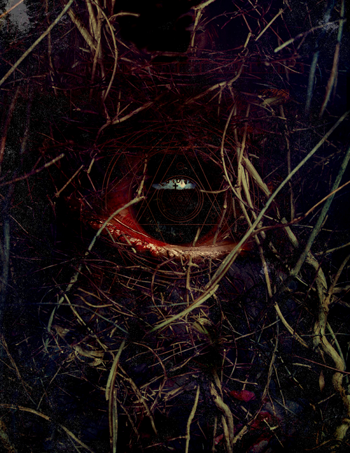Gumshoe, News, See Page XX
The Plain People of Gaming: Refreshes as Thematic Reinforcement
 Most roleplaying games have some sort of diminishing resource that limits the player character’s ability to keep going. The commonest example are hit points and similar measures of health – if you’re running low on hit points, you need to stop and heal up.
Most roleplaying games have some sort of diminishing resource that limits the player character’s ability to keep going. The commonest example are hit points and similar measures of health – if you’re running low on hit points, you need to stop and heal up.
F20 games like 13th Age also treat some of your characters’ special powers as a diminishing asset. Classically, the fighter can swing swords all day, but the wizard has to stop and rest to regain spells. Even if the party’s at full heath, they still need to take a break every few encounters to rememorize those fireballs (thank you, Jack Vance).
GUMSHOE goes even further. You spend points from your General Ability pools to get things done, but once those pools are exhausted, you’ve got to rest and refresh. Declining General Ability pools represent different things in the game, and physical fatigue is only one of them. Pools also measure spotlight time and what might be termed novelty – when you run out of Explosive Devices, it’s not because you’re physically exhausted from setting all those bombs, it’s that it’s dull to solve every single problem with the same blunt instrument.
In most GUMSHOE games, Athletics and other combat abilities (Shooting, Scuffling etc) refresh every 24 hours, reflecting the benefits of resting and the fact that these abilities come into play a lot. Other General Abilities only refresh at the end of the adventure. This simple approach is easy to track and doesn’t require much attention from players or GM.
Refreshes can also be a little more complex:
- Once per session in Fear Itself, if the players can find a safe haven to hide from the monsters, they get to refresh up to three General Abilities.
- Night’s Black Agents has a host of ways to get partial refreshes – the group’s resident gun expert can use a Technothriller Monologue to get 3 points of Shooting back, while spending time with your Solace restores Stability
- TimeWatch gives even more control to the players with Stitches that they can cash in for General Ability points.
- Regaining a few General Ability points is a common benefit for a suitable investigative spend
Another option (especially in games where the players are hesitant to spend General Ability points) is to explicitly highlight ways to refresh abilities that also reinforce the themes of the game. Havens do this in Fear Itself by rewarding the players for thinking about places to hide and rest instead of attacking the monsters head-on. In other games, where scurrying away in terror isn’t the desired behaviour of player characters, you can offer other ways to refresh General Abilities.
Reward engagement, not success. Giving players points as a reward for defeating the bad guy is, er, pointless – they need those precious refreshes before that climactic confrontation. Instead, think about what sort of thing you want the player characters to do that isn’t directly related to solving the mystery.
- The Esoterrorists: Refresh any one General Ability when you successfully cover up evidence of an Esoterror attack or supernatural event
- Mutant City Blues: Refresh any three General Abilities by presenting sufficient evidence to your commanding office in the Heightened Crimes Investigation Unit to get signoff on an arrest warrant
You can even suggest opportunities to refresh as a reward for investigative spends.
- Ashen Stars: Ok, you can get three points of Emotional Control back right now if you spend a point of Balla Culture – or you can learn the location of a Balla Temple where you’ll get a full refresh, but you’ve got to actually go to the temple and meditate there to get the benefit, and that’ll be a new scene.
- Trail of Cthulhu: Your character’s a shady, unreliable type, right? Spend a point of Streetwise and vanish when just when the rest of the party thought they could rely on you, and I’ll let you refresh any two of Filch, Shadowing, Stealth or Sense Trouble.
Giving players the option to chase down refreshes like that requires more effort from both the players and Gamemaster compared to the default “fighty stuff refreshes in 24 hours/everything else refreshes at the end of the adventure”, but the payoff in thematic resonance may can be worth the extra effort – especially if your players are prone to hoarding points for the final encounter. Giving them more chances to refresh midgame makes them more likely to spend midgame.



